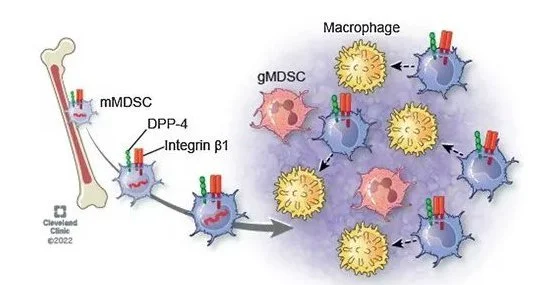Our Research
The role of DPP-4 in myeloid cell regulation
We recently demonstrated that dipeptidyl peptidase 4 (DPP-4) is a regulator of immunosuppressive myeloid cell activity in glioblastoma. We now seek to identify the mechanism by which DPP-4 regulates the pathological function of myeloid cells in cancer to identify potential therapeutic targets.
Sex differences in anti-tumor immune response
Males are more likely to get diagnosed with brain tumors and male patients have worse disease outcomes. We showed that sex differences in myeloid-derived suppressor cell subsets contribute to glioblastoma outcome and comprise a therapeutic opportunity. We seek to uncover sex-specific immune mechanisms driving brain tumors in females versus males to develop personalized immunotherapies.
Epigenetic basis of myeloid cell behavior in cancer
We observed that myeloid-derived suppressor cell subsets have distinct epigenetic profiles, which are further impacted by host sex. We seek to interrogate epigenetically-regulated pathways determining myeloid cell response in cancer, and host and tumor-derived factors regulating their behavior.


